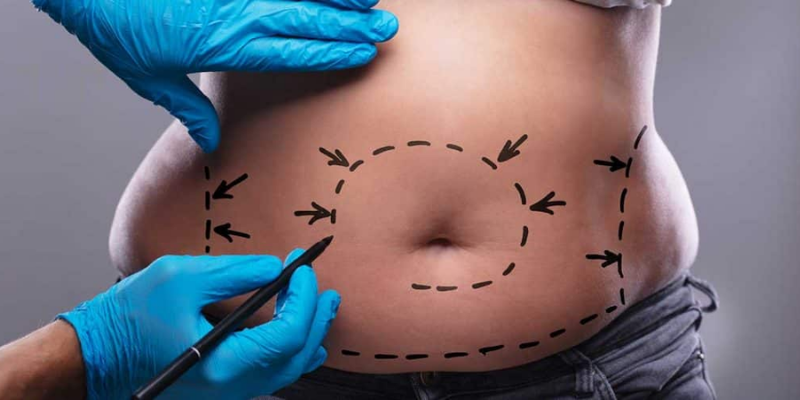Does Medicaid Cover Weightloss Surgery?
Does Medicaid Cover Weightloss Surgery? In some situations, people need to have surgery to lose weight. It’s not easy to deal with being overweight. Also, there are times when it can get out of hand. Surgery is the only way to improve a person’s health as a whole. Bariatric surgery might be the only way to get a healthy weight and way of life.
Still, these surgeries might be a bit more expensive than you think. Bariatric surgery can cost anywhere from $15,000 to $30,000, depending on where it is done, what kind of surgery it is, and who is getting it done.
Medicaid usually pays for surgery to help people lose weight. In this case, the patient must meet some basic requirements in order to be covered. The same may be different in different states, so it’s important to check before moving forward. The rules for Medicaid coverage don’t say much about bariatric surgeries, and each case is handled differently. You and your doctor need to talk about the process of getting Medicaid coverage.
How Does Medicaid Covwr Weightloss Surgery?
Most of the time, bariatric surgery is fully covered by Medicaid if it is approved. You could also get gap insurance or supplemental insurance to cover any costs that Medicaid doesn’t cover. After getting approved for Medicaid, it can be done. With gap coverage, you can use other insurance companies to cover any extra amount.
Which ways to lose weight does Medicaid pay for? Most of the time, Medicaid pays for Lap-Band, gastric sleeve, and gastric bypass surgeries. These surgeries are not only easy to get covered by Medicaid, but they are also some of the most commonly suggested ones. In some situations, these are seen as medically important to the patient’s life and health.
Gastric Bypass
With gastric bypass, the size of the stomach is cut down and a part of the intestine is skipped over. So, you eat less, and the food goes right to the bottom of your intestine. Because of this bypass, less food and calories are absorbed. So, it makes people eat less, which also helps them lose weight. In Lap-Band surgery, silicone bands with balloons are used to cover the top part of the stomach.
This makes it harder to store food. Also, the opening to the stomach shrinks. Laparoscopic surgery is used to do the procedure, which is less invasive than some others. It is also better because it is easy to turn around and the band can be changed. In gastric sleeve surgery, a smaller stomach in the shape of a sleeve is made. Since there isn’t much room for the food to sit, it moves quickly to the intestines. So, it too makes you eat less and absorb less calories.
If your state’s Medicaid covers bariatric surgery, you need to talk to your doctor. Medicaid will pay for surgery if there is a medical need for it. It is very important to have a doctor who can explain why bariatric surgery is medically necessary for the patient. A doctor can also send a patient to an approved surgeon to help figure out what’s going on.
Qualifications For Medicaid Coverage
Approved surgeons can help you understand how the surgery works and what your options are. After you decide, you’ll need to take some tests and talk to the Medicaid office to make sure the surgery will be covered. The process takes a long time and needs both patience and persistence.
Before getting approved, you may have to go to classes to learn about the surgery, what you need to eat, how your lifestyle needs to change, and the exercises you must do after the surgery. This makes sure that the patient knows what the surgery means and what needs to happen for it to go well.
Medicaid might say yes if you make the right arrangements. Some of these provisions can also include more classes or tests. After getting approval from Medicaid, your surgeon will figure out if you are healthy enough to go through with the procedure. This can include medical preparation, blood tests, and X-rays. The surgery has finally been scheduled. So, you take a step toward a healthier way of life and toward your weight goals.
Local Office For Medicaid Insurance
The local Medicaid office is the best place to find out what parts of the surgery Medicaid may or may not pay for. If you need it, make sure you have the list of approved surgeons on hand. This information is easy to find at the Medicaid office, where you can also get answers to all your questions.
In short, Medicaid will probably pay for bariatric surgery if it is necessary for health. If Medicaid in your state covers weight loss surgery, the first thing you should do to get permission for surgery is to make an appointment with a doctor. During the meeting, the doctor will talk about the details of the surgery and your options. Once you’ve decided, the surgeon can do several tests to check your health. If the doctor says you’re fine, you can ask the state Medicaid office for a surgery pre-approval.
The whole process can take a while, so you’ll need to be patient. If Medicaid agrees to pay for the surgery, your doctor will have to make sure you are ready for surgery at that time. This could mean getting some x-rays, checking your blood, and doing other things to get you ready for surgery. It can be hard to figure out which parts of your operation Medicaid will cover in your state. But you can check with the Medicaid office in your state to see if you can get this information. These procedures are not cheap by any means, and you may be wondering if you are eligible for them.
Who Can Get Medicaid Coverage For Weight Loss Surgery?
Read on to learn which bariatric procedures are covered by Medicaid and how weight-loss surgeries are covered for Medicaid members. Men must be at least 15 years old and women must be at least 13 years old. If you are under 21 years old, your BMI (body mass index) should be over 40, and if you are over 21 years old, it should be over 35.
Proof that you have tried to treat your comorbidities with standard care but have failed. Sleep apnea, high blood pressure, diabetes, and high cholesterol can all happen together. Proof that you lost weight in a medically supervised program for six months, and that this happened a year before your surgery. Does Medicaid Cover Weightloss Surgery?
Insurance Need-to-Knows: Does Medicaid Cover Weight Loss Surgery?
It is important to note that whether does Medicaid cover weight loss surgery varies depending on the location. At some locations, it may not be covered at all, while in other ones it may be available under certain circumstances. Weight loss surgery is a serious commitment and should not be taken lightly. It is important to discuss all options with your healthcare provider before deciding if this type of procedure is right for you. Your doctor can help you determine if you are eligible for Medicaid coverage, if necessary, and provide advice on the best course of action for your situation.

In addition, they can put you in touch with other resources that may be helpful in making an informed decision about your health. Ultimately, it is up to you and the guidance of your healthcare provider to ensure that surgery for weight loss is the right choice for you. It is also essential to gain an understanding of the risks involved with weight loss surgery before making any decisions regarding its use. You can ask whether does Medicaid cover weight loss surgery or not to your doctor while learning about any possible side effect.



